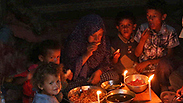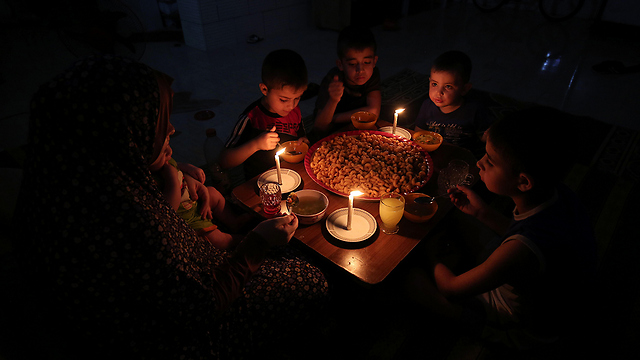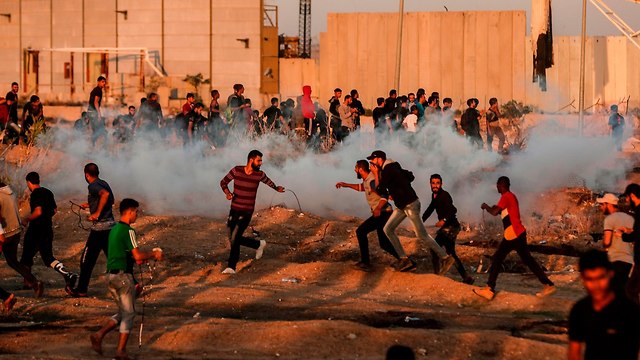
Solving Gaza crisis with water and energy
Op-ed: Declarations and threats against Hamas will not solve the problem. The Israeli government must make a strategic commitment to solving the humanitarian crisis in Gaza as it did when confronted with missiles and tunnels, only that will stop the violence.
All acts of terror are abhorrent. Declarations and threats against Hamas, however, are not particularly effective, especially when it comes to acts of violence carried out by desperate and radicalized young people, encouraged by bad actors who are immune to Israeli, Palestinian, and international public opinion.
What is required instead is a commitment on the part of the State of Israel to long-term strategy and bottom-up, high-impact, sustainable solutions for Gaza, not just declarations.
I believe that the current violence, which impacts my Israeli friends in the Gaza border region and my Palestinian friends in Gaza, as well as our shared natural resources, will only be reduced by long-term solutions, which make life in Gaza livable.
With three to four hours a day of electricity; 95 percent of the water undrinkable according to WHO standards; raw sewage pouring into the streets and the sea from wastewater treatment plants that are not functioning; no hospital services or waste removal services; schools that barely function; and unemployment among young people in Gaza at 60 percent, there will always be a ready supply of hopeless, angry, young people, prepared to attack Israel with balloons, kites, and new ways we have not yet imagined, even at the risk losing of their own lives.
Residents of Gaza need drinking water, water for agriculture, and a reliable source of electricity in order to run their households (refrigeration, light, laundry, communication technologies etc.) and operate wastewater treatment plants, hospitals, schools, and basic services. Residents of Gaza need jobs in order to feed their families. Young people in Gaza need hope in order to stop showing up at the border on Fridays, ready to sacrifice themselves because they have nothing else to lose.
Thanks to modern science and technology, we have means to provide water and electricity even to remote dry areas like the Arava desert, where I live. There is no technical reason why the almost 2 million residents of Gaza don’t have these basic services. The only reason is political, but we cannot let politics or even terror get in the way of supplying the people of Gaza with basic humanitarian services. Not if we want to stop the cycle of violence.
There has been no stronger voice for solving the humanitarian crisis in Gaza despite the ongoing violence, than that of the Israeli Defense Forces. High-ranking officers in the IDF have been outspoken in their support for solving the water, wastewater, and energy scarcity problems in Gaza.
There are Israelis and Palestinians with the technical knowhow and experience ready to provide Gazans with drinkable water, water for agriculture, wastewater treatment and reuse facilities, and reliable sources of energy from the sun. What is lacking is not the knowhow but the political will.
Declarations are not enough. The Israeli government must make a strategic commitment to solving the humanitarian crisis in Gaza as it did when confronted with missiles and tunnels, for the threat of a large neighboring population living without hope is just as great.
David Lehrer is the director of the Arava Institute for Environmental Studies.


















